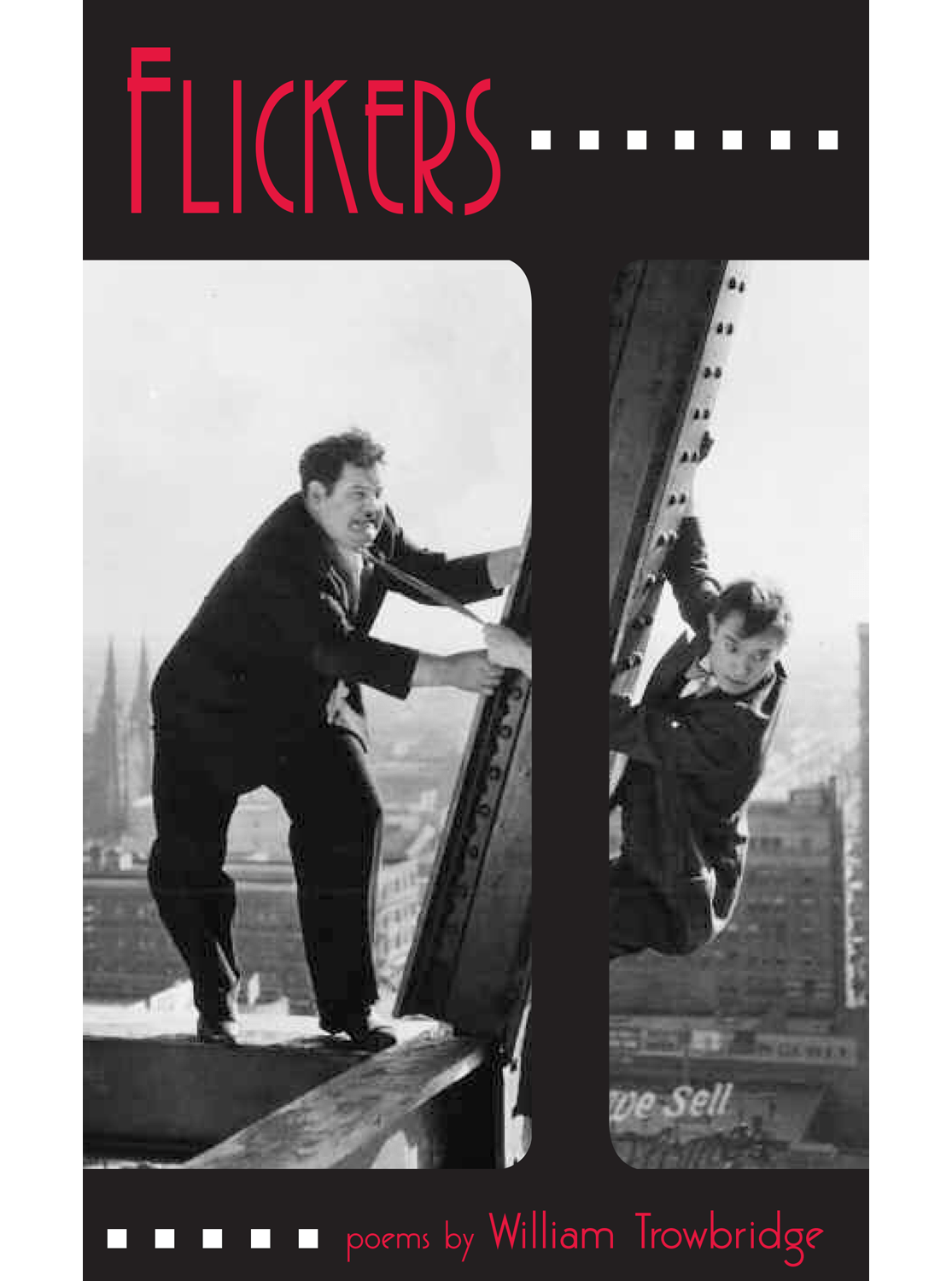In his latest collection of poems, William Trowbridge explores the fascination Americans have with movies, how “flicks” allow us to temporarily forget our problems and, ironically, to forget that real conflicts are what make us human. The language he uses is the American language of pop culture: sports talk, movie talk, shoptalk, and clichés—all are blended together into carefully crafted lines that are uniquely Trowbridge’s. Readers will be delighted to follow each poem to its effectively understated end.
These poems are dark comedies that capture both the eerie and the ordinary. This balance is not easily achieved, but like a veteran comedian executing a pratfall, Trowbridge makes it all seem natural. His surreal family, the Glads, satirizes life in suburbia and reflects the often absurd margins of our urban lifestyle. By contrast, a group of poems revolving around a packing house in Kansas City (Trowbridge worked there as a young man), reminds us of those darker places in our lives that exist just “across the street from the ledgers and lapels.”
The variety of subjects Trowbridge works with is refreshing. Whether he is writing about Buster Keaton, Fred Astaire, June bugs, baseball, the holocaust, Cadillacs, or old dogs, his eye is always focused on the turn of phrase that will catch us off guard. His well-crafted lines are full of wit and humor. He approaches his subjects like Coyote approaches Fox—smiling, ready to expose his dear friend to the reality of his existence through sleight of hand. And, like Coyote, he teaches us to laugh at ourselves or perish under the weight of our everyday lives.
“Trowbridge has something close to the ideal balance between counting the streaks of the tulip and being chiefly conversant about general truth. He is much up on the peculiarities of our little time in the world.”
—Howard Nemerov

